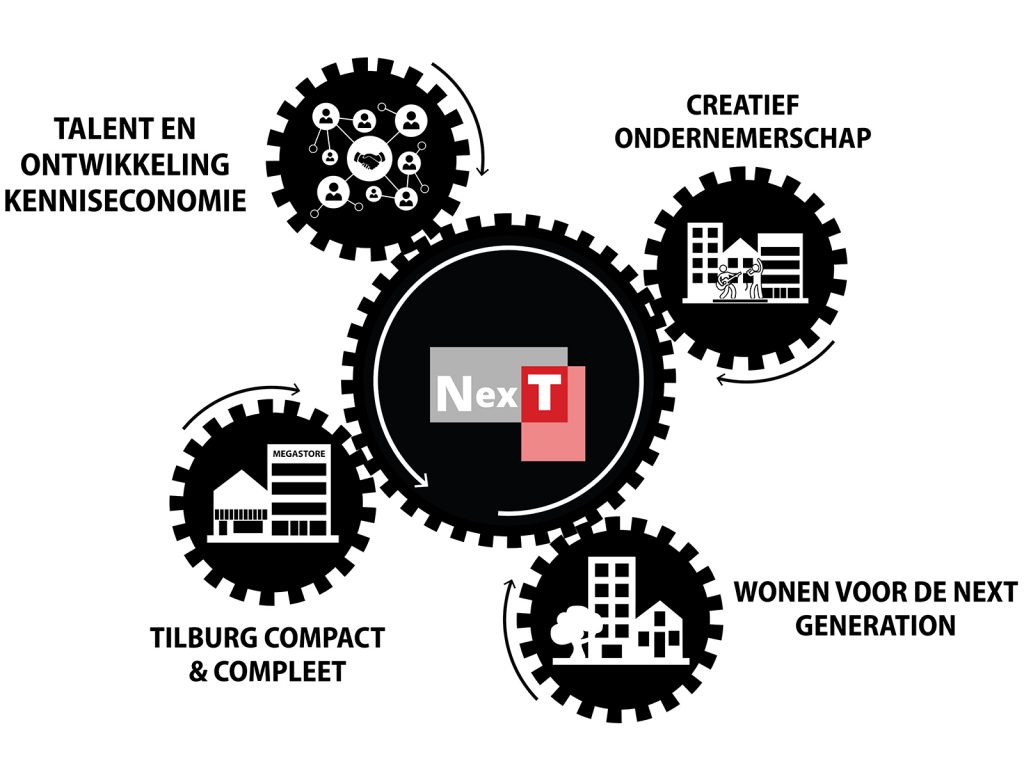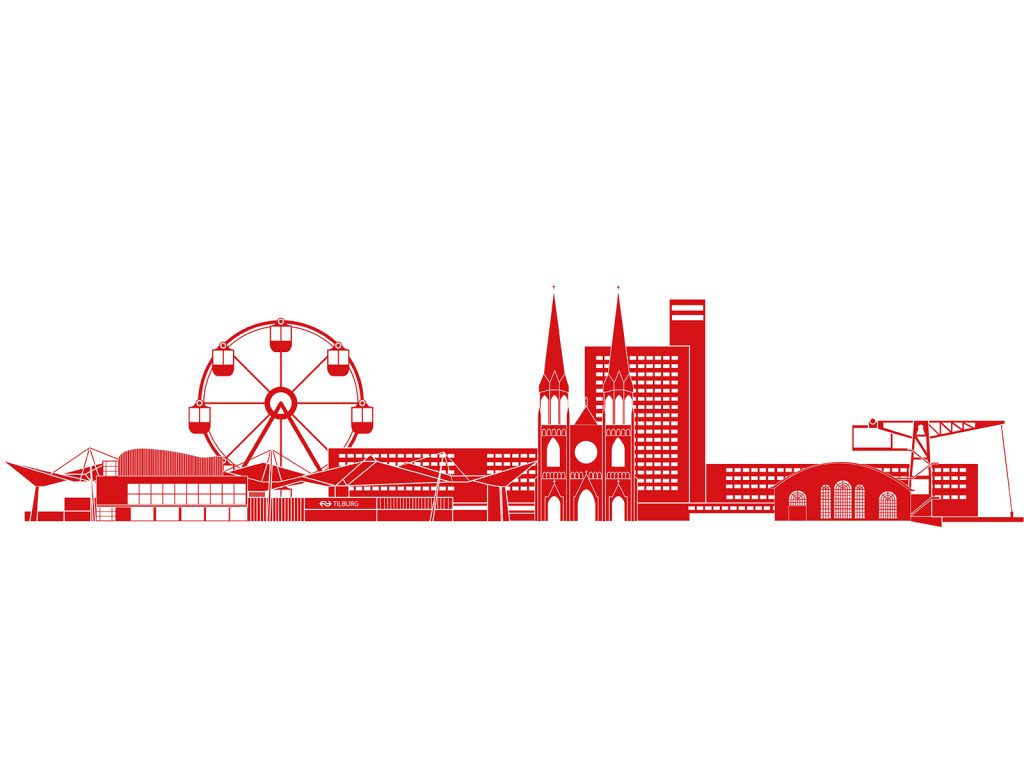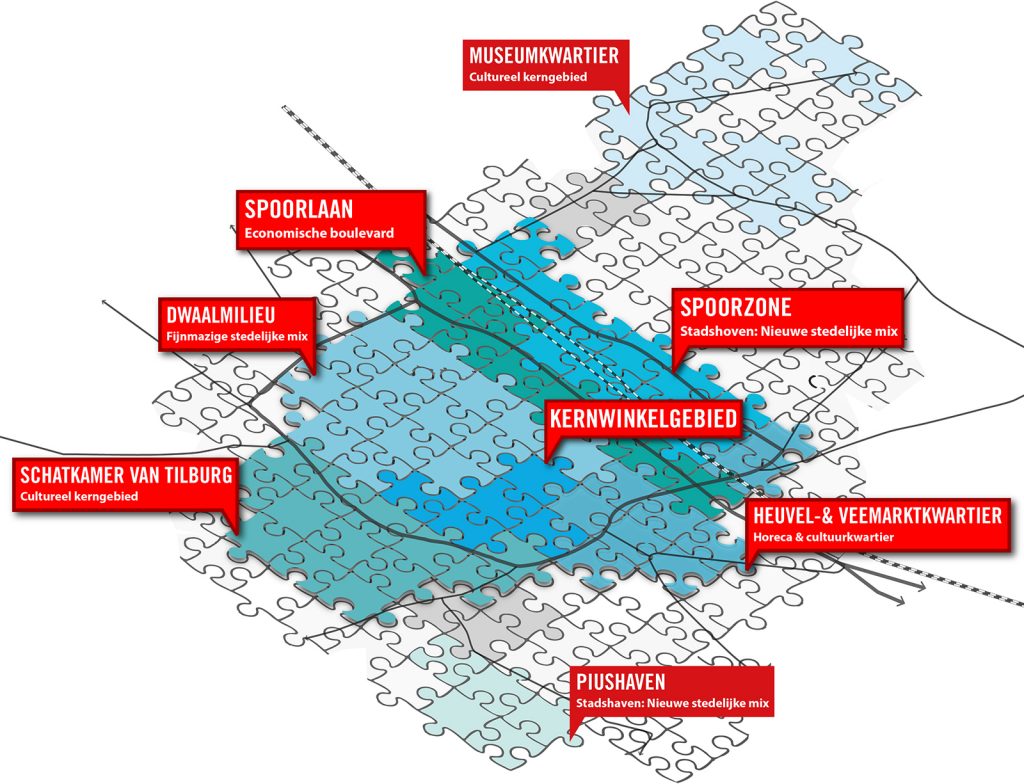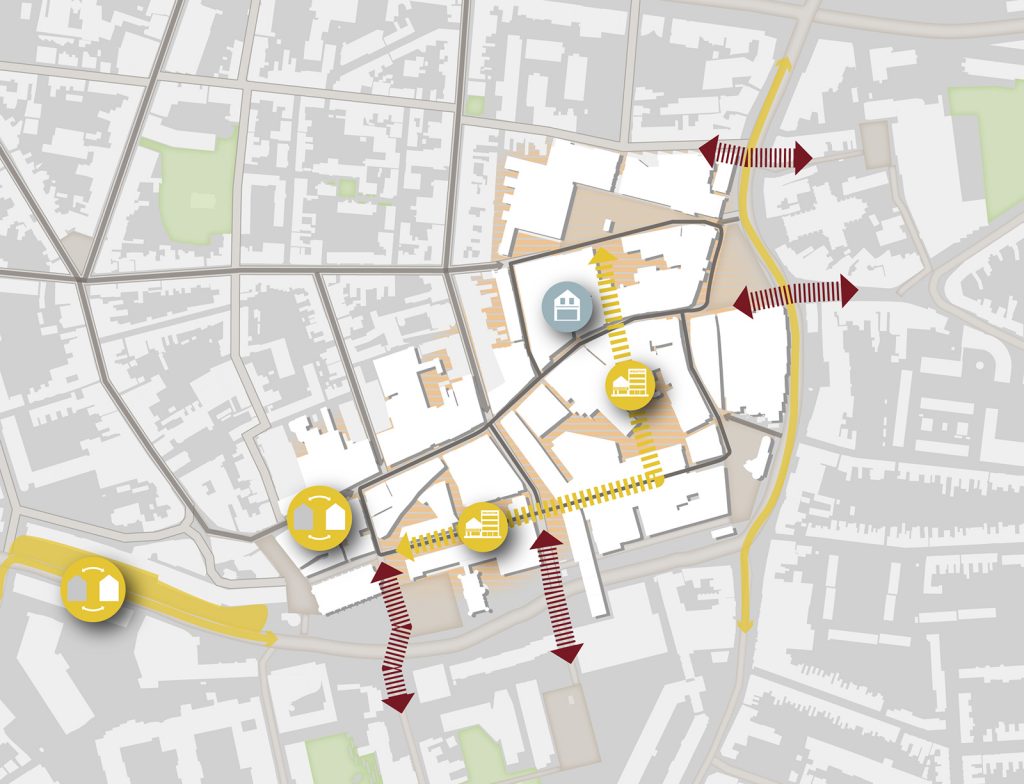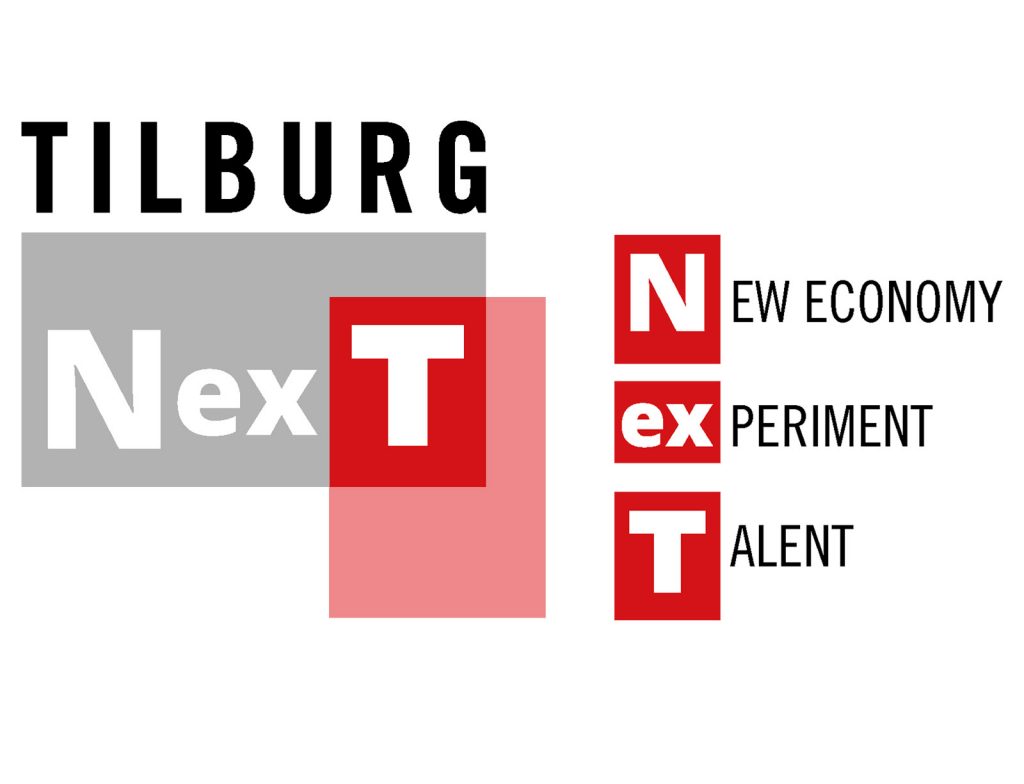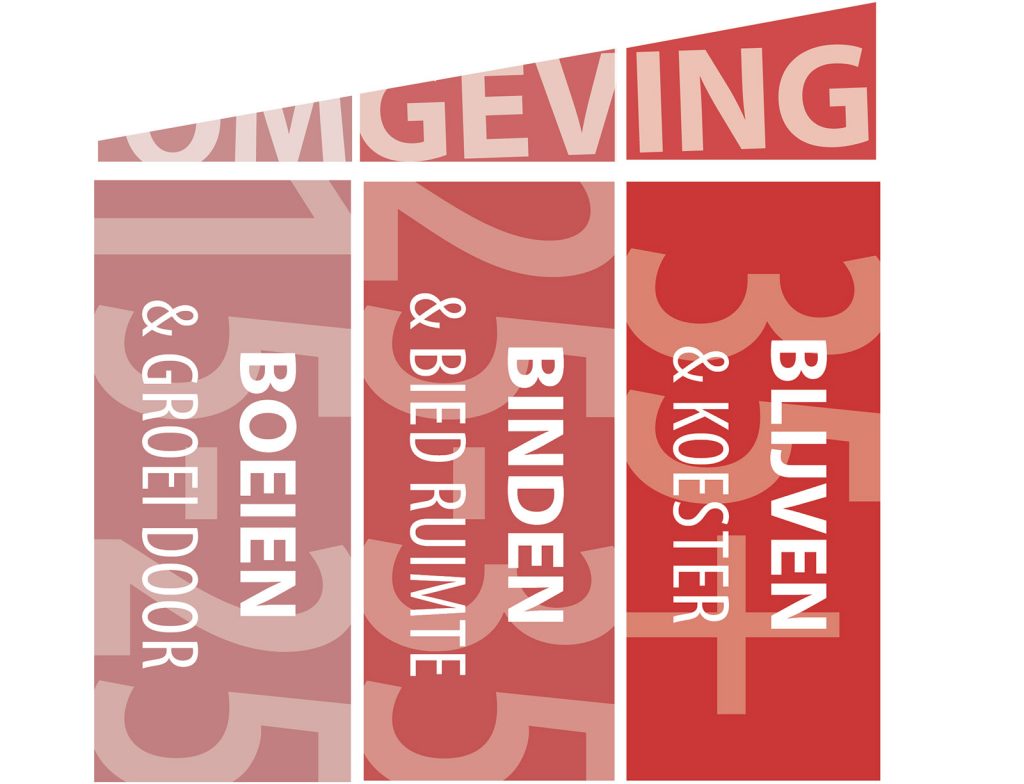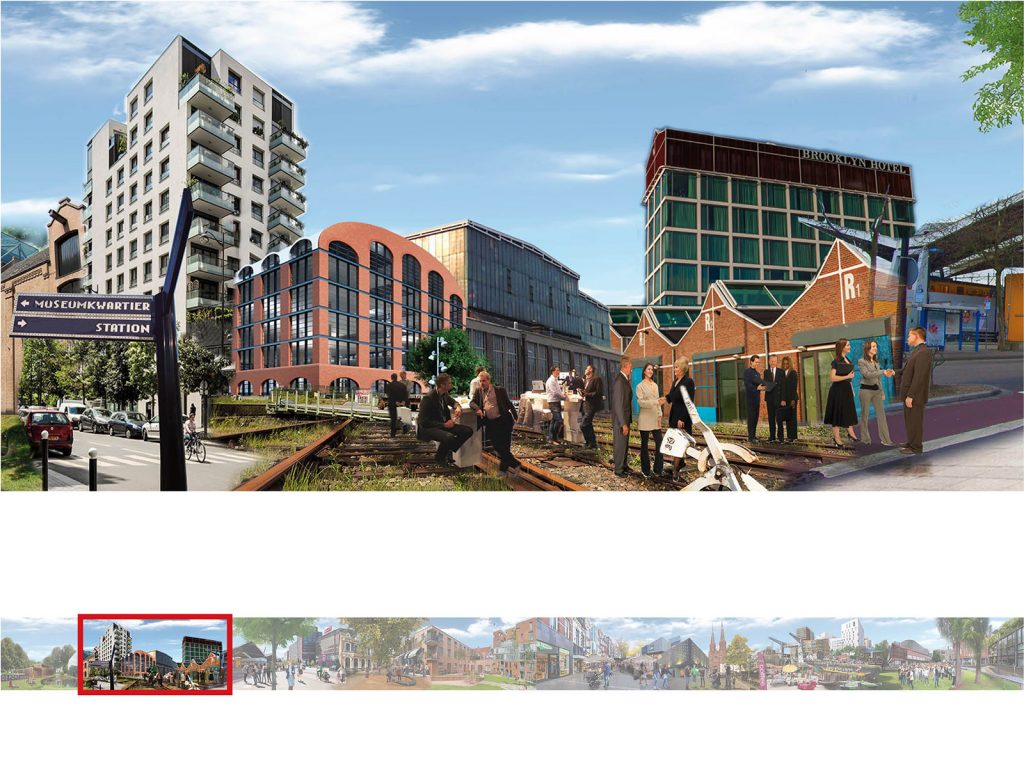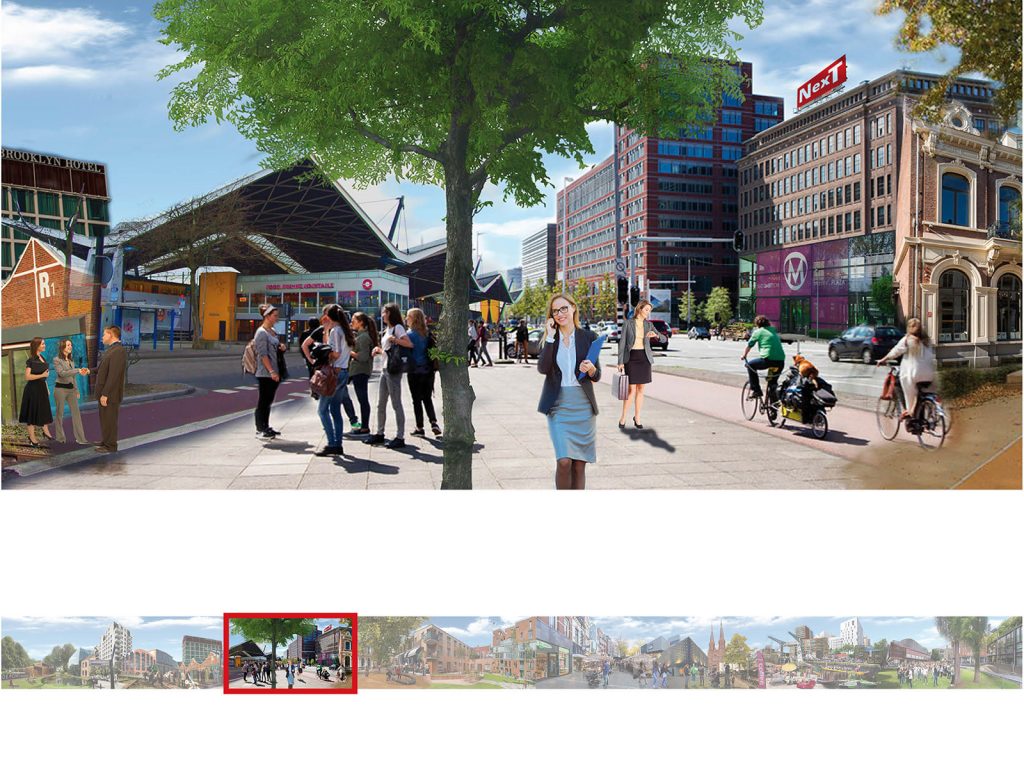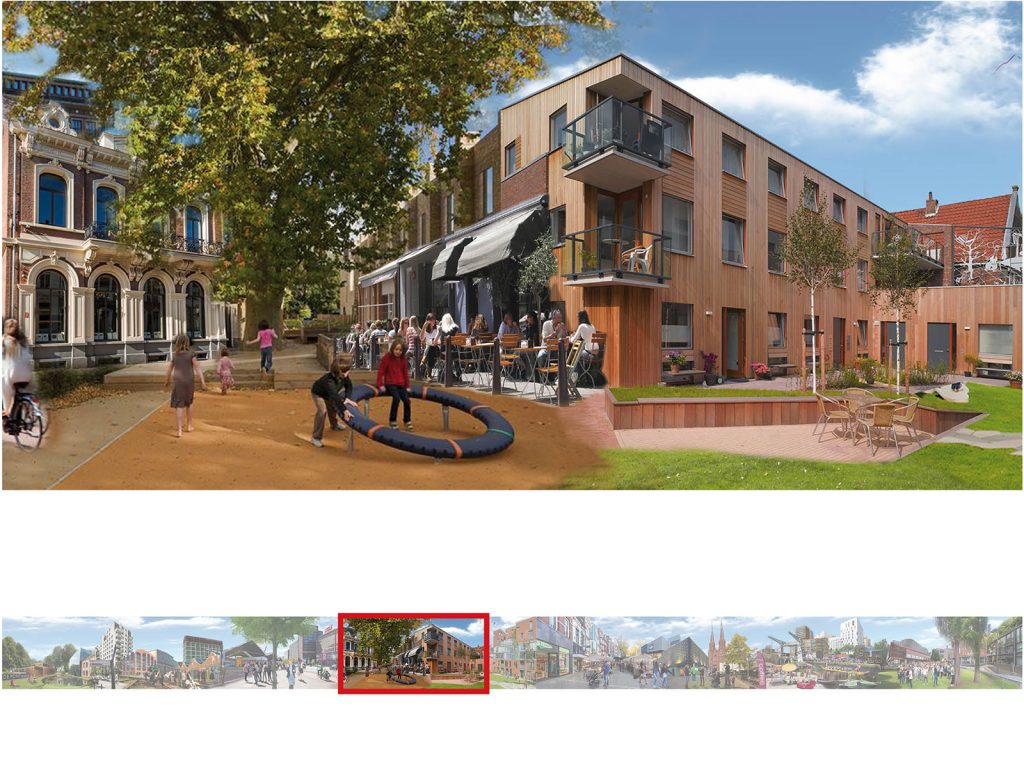The centre of Tilburg is developing. Construction cranes are everywhere and the skyline is changing in areas like the main shopping district and the railway precinct. The time has now come to consider the economic future of the city centre. How can we make the most of the massive public investments? What do the successful projects mean for the city centre? And how can the city centre function better and cohesively as a single entity? Strengthening the economic structure is the key to this economic and spatial vision, which is based on spatial quality.
Strengthen what is strong
Tilburg NexT means choosing for the NexT Generation. Tilburg is a city full of talent, students and young people. They are tempted to continue living, working and spending in the city for longer. In that way, Tilburg creates its own future middle class. Tilburg believes in its own power by strengthening what is strong. One of the core qualities is ‘culture and creativity’. Tilburg will deploy these as the basis for new urban development. An attractive, mixed and vibrant city centre is essential to the new economic strength of the city centre. Knowledge workers and new city dwellers desire such a centre. Tilburg can and should make significant progress in this area. Improved economic performance is possible through a four-part strategy:
- Compact and complete: develop a city centre that is of sufficient quality in terms of shops to support local and regional purchasing power
- Living for the NexT generation: create inner city living environments for the mid-twenty age group
- Talent and development of knowledge economy: provide space for urban economy to grow: business services and knowledge economy
- Creative entrepreneurship: let creativity provide a basis for the urban economy.
Conversations with the city
The city centre belongs to everybody. This means that conversations were held with representatives and residents of the city centre. These took place between the establishment and completion of the vision period (December 2016 – early 2017). Moreover, an expert team made up of local and national experts was set up to reflect on the plans.
A vision as basis for an agenda and assessment framework
The vision for the city centre is not yet complete. The vision forms the basis for an implementation agenda and assessment framework. Which projects will be tackled (and, importantly, completed) over the coming years? And what are the spatial and programmatic frameworks that initiatives must comply with so that the city centre can develop in a cohesive way in the coming years? This implementation agenda will be drawn up in the spring of 2017.
